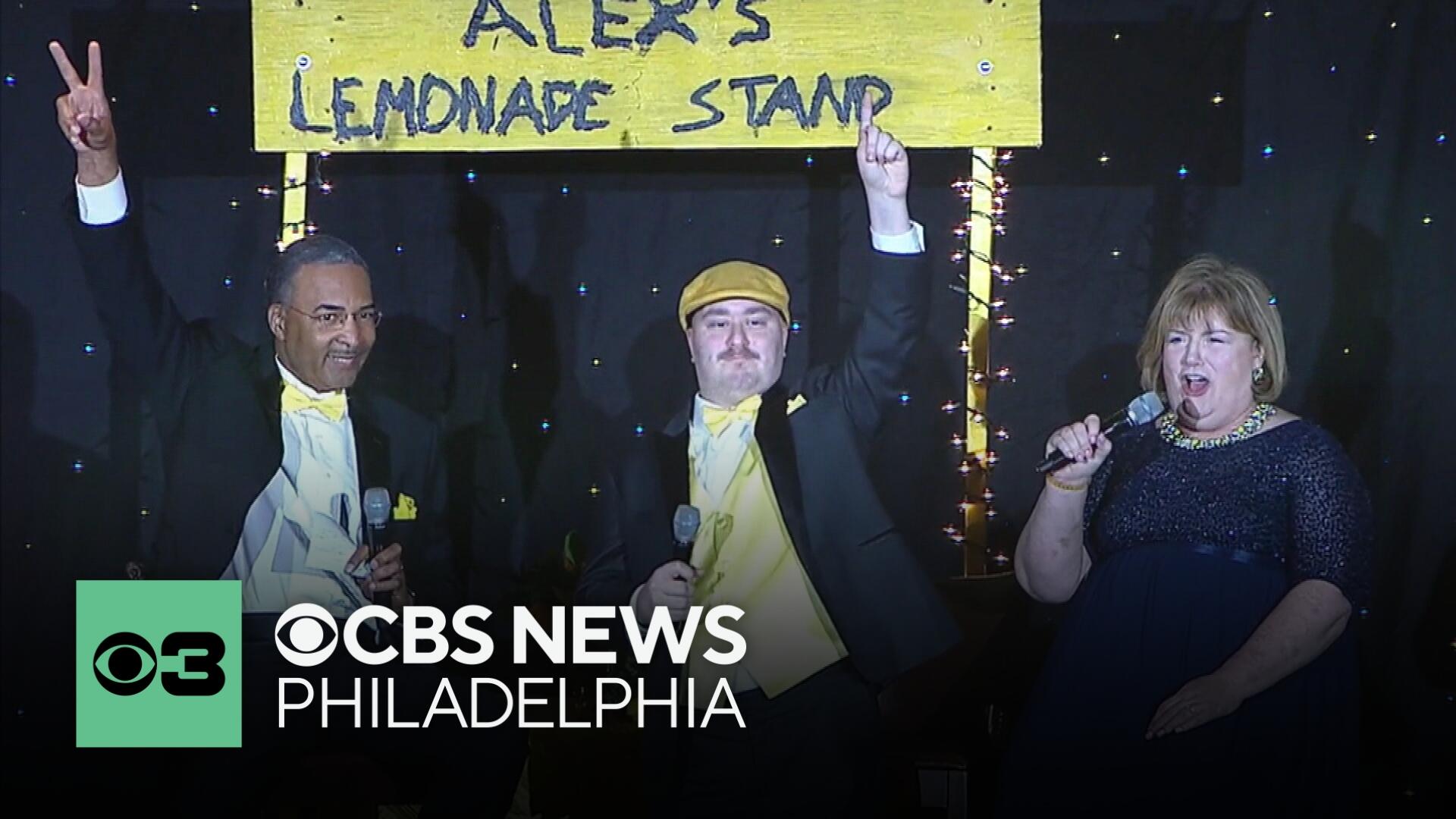Alex's Lemonade Stand Foundation funding research for newborn screening for genetic predisposition to cancer
Alex's Lemonade Stand Foundation aims to cure the incurable, and its supports research into the most challenging problems in childhood cancers. This year, two major projects could be game changers and even lifesavers.
You probably remember Cole Fitzgerald's smile, a friend of ours at CBS Philadelphia and a cancer hero of the Alex's Lemonade Stand Foundation who passed away in 2023.
Fitzgerald had neuroblastoma as a child and was cancer-free for 15 years when he was diagnosed with metastatic pancreatoblastoma. His parents say they learned during his final fight that he had a genetic predisposition to cancer.
"That's when they discovered that he had [Li-Fraumeni syndrome], which meant that one of us potentially passed it on to him," Karen Fitzgerald said. "It is a genetic predisposition where a particular gene called the TP53, which is in normal DNA, is a tumor suppressor. And in people that have LFS that tumor suppressor does not function."
"Probably around 10% of children develop cancer because they have a genetic risk for cancer," said Dr. Lisa Diller, a pediatric oncologist at the Dana-Farber Cancer Institute and Boston Children's Hospital.
Alex's Lemonade Stand Foundation's Crazy 8 Initiative is funding a research project examining newborn screening for a genetic predisposition to cancer.
"Well, there are some genes that we can find in children that tell us that a child is at risk for cancer," Diller said, "and then we can do screening and find it early. And maybe use very minimal therapy to cure that child so they don't need chemotherapy, they don't need radiation, or we increase their chance of being cured."
The testing would be part of routine heel stick blood tests on newborns.
"We pick up children at risk for cystic fibrosis and for a variety of rare genetic disorders," Dr. Sharon Plon, the chief of the cancer genetics clinic at Texas Children's Hospital, said. "And we're able to treat them or do surveillance. But we've never done that for cancer."
If a genetic risk of cancer is found, children would be screened regularly through childhood and into adulthood.
"Cole would have had a different level of surveillance after his first incident rate of cancer," Karen Fitzgerald said. "When you're getting yearly MRIs of the brain and the body and all the additional blood testing as well."
Although Karen Fitzgerald learned that she and other family members also have the genetic predisposition, she and her husband considered it a last gift from Cole.
Another group of researchers is working on vaccines. The Crazy 8 Initiative allows researchers to take risks — risks that are necessary to find treatments, cures, and hopefully, vaccinations.
"I don't think this would be possible to get funded through any other traditional mechanism that I've heard of," Dr. David Malkin with the Hospital for Sick Children and the University of Toronto said. "The Alex's Crazy 8 grant is going to get us to the point that this is actually can be something that can be something that can be in clinical trials in children."
"It's too late for Cole, but to see these grants and what they're doing and the possibility to save others that have the same predisposition," Bill Fitzgerald said.
"He would be thrilled, delighted," Karen Fitzgerald. "He would say, let's go."




